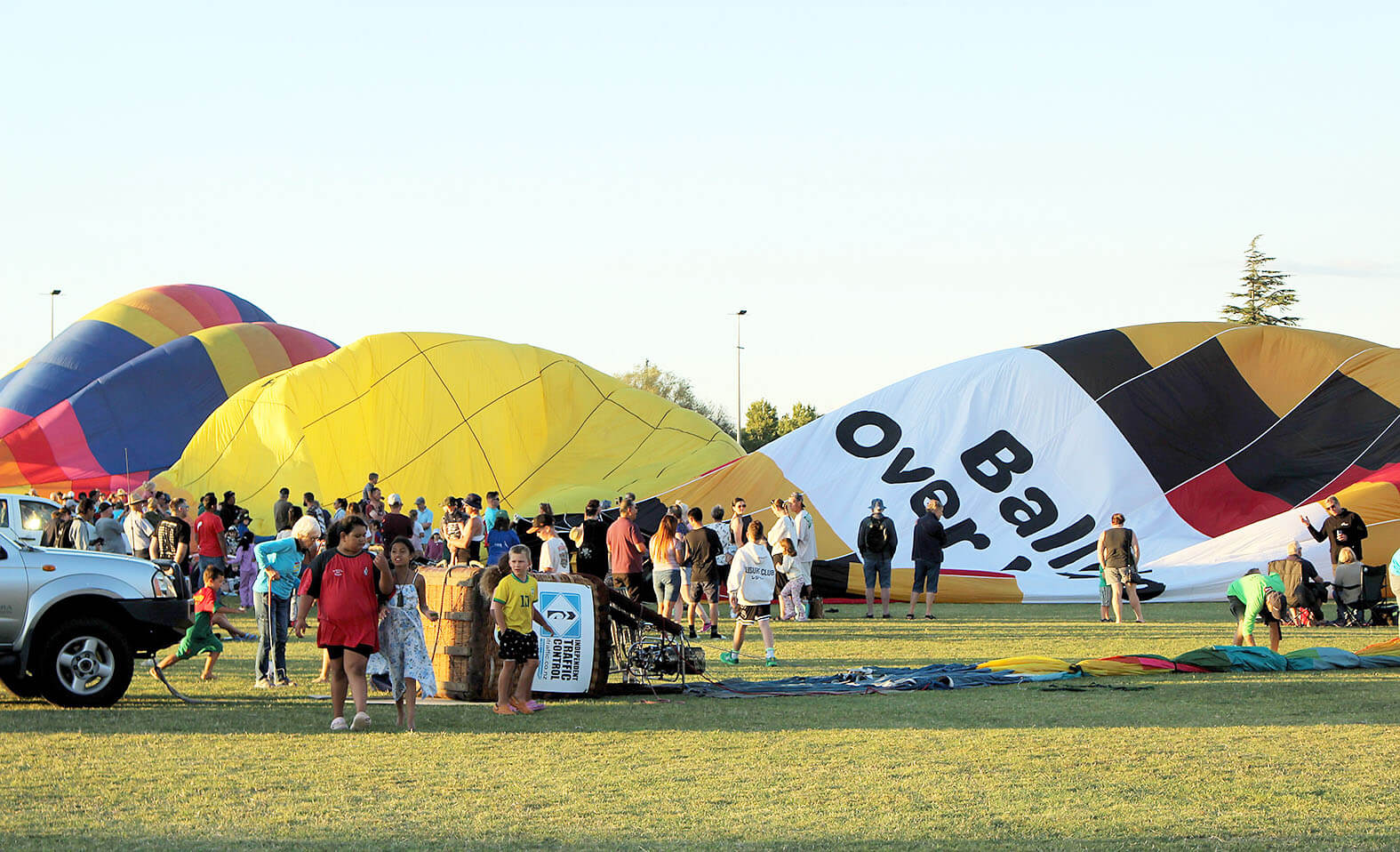It was good to see lots of whānau at the Balloons over Waipa event in Te Awamutu last Friday. In Cambridge on Sunday, a similarly positive crowd cheered on Maadi rowers as they began the regatta with a parade through the centre of town.

Leamington-based pilot Rolf Dennler prepares his Independent Traffic Control balloon, Happy 2, balloon for inflation. Photo: Jesse Wood
Starting off with catches again, Cambridge police arrested a woman for some recent high value shoplifting incidents. An encounter with a different woman last week found her to be in possession of a stolen vehicle and to be wanted for shoplifting. She also had a warrant for her arrest. Her male associate was subsequently arrested for his warrants and also charged for the same shoplifting incident.
In Te Awamutu, police arrested a male for assault and wilful damage after police attended a family harm incident involving his partner. Another family harm incident resulted in the arrest of a second male for intentional damage and resisting police. In a third incident, a male was arrested for wilful trespass and breach of bail when he was found to be at an address where he shouldn’t have been. All have appeared before the court on associated charges.
The above arrests would not have been possible without someone reporting an offence to police.
After a few missed opportunities lately, I wanted to remind people about calling 111 when offending is in progress. There can be various reasons why people don’t call police. Sometimes we second guess ourselves, especially asking whether what is happening constitutes an emergency. My guidance is always, if the incident or offending is happening now, call 111. (If it is a few hours, days or weeks in the past, then call 105.) But do make a call. Some people assume others will have already phoned 111, especially when the incident is in a public space. If we all make that assumption, there may be no one who calls, or the person that does, may not have as much information as you about offenders.
If you decide to try and solve the problem by approaching victims or offenders yourself, this is a missed opportunity. You never know who it is you are talking to or of what they may be capable. You may be putting yourself at risk, while denying police the chance to help a victim with wrap around support or in the case of offenders, the chance to identify them and take appropriate action, including dealing with any other outstanding matters for which they may be wanted.










